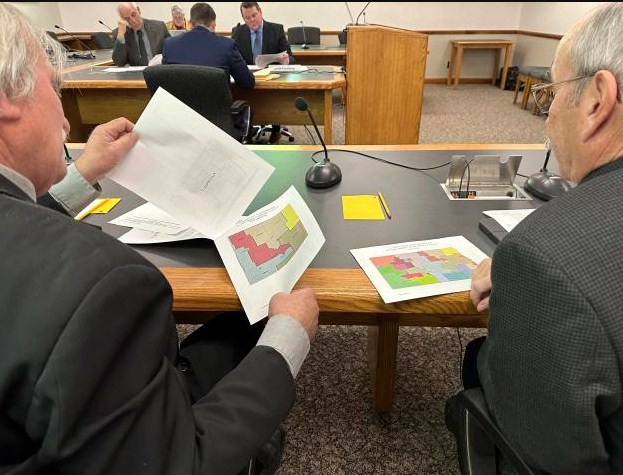A federal judge has ruled that the state’s 2021 redistricting plan violates the Voting Rights Act of 1965 by diluting the voting power of two tribal nations.
The Ruling
On Friday, November 17, 2023, U.S. District Chief Judge Peter Welte issued a ruling that North Dakota’s 2021 legislative redistricting plan violates the rights of two Native American tribes because it dilutes their voting strength. The ruling came months after a trial held in June in Fargo. The decision could lead to another surprise special session of the Legislature.
Welte said the plan approved by the state Legislature to redraw voting districts in accordance with the latest census data “prevents Native American voters from having an equal opportunity to elect candidates of their choice” – a violation of the landmark civil rights law. Welte gave the Republican-controlled Legislature and the secretary of state until December 22 “to adopt a plan to remedy the violation.”
The Lawsuit
The lawsuit was filed by the Turtle Mountain Band of Chippewa Indians and the Spirit Lake Tribe, who alleged that the 2021 redistricting map “simultaneously packs Turtle Mountain Band of Chippewa Indians members into one house district, and cracks Spirit Lake Tribe members out of any majority Native house district.”

The two tribes sought a joint district and unsuccessfully proposed to the Legislature a single legislative district encompassing the two reservations, which are roughly 60 miles apart. The tribes submitted a plan in federal court for a joint district that “doesn’t move very many lines statewide,” according to their attorney Tim Purdon.
Purdon said he was hopeful that the Legislature would take a look at the plan proposed by the tribes and stop the litigation. “I’m hopeful that the Legislature will take a look at this, adopt the plan proposed by the tribes and stop the litigation, stop the spend of dollars on this litigation,” Purdon said.
The Reaction
The ruling was welcomed by the tribal leaders and advocates, who said it would ensure fair representation and participation for Native American voters.
The ruling “means that our communities will be able to elect a candidate of their choice, whether that’s a Native or a non-Native candidate,” said Nicole Donaghy, executive director of North Dakota Native Vote, an organization that advocates for civic engagement on reservations.
Spirit Lake Tribal Chairwoman Lonna Jackson-Street said she looked forward to working with state officials “to create a legal and inclusive” map.
The ruling also drew criticism from some Republican lawmakers, who said it was an overreach by the federal court and that the state’s redistricting process was fair and transparent.
House Majority Leader Chet Pollert said he was disappointed by the ruling and that the Legislature would review its options. “We believe we followed the law and the Constitution in drawing the districts,” Pollert said.
Senate Majority Leader Rich Wardner said he was surprised by the ruling and that the Legislature had tried to accommodate the tribes’ requests. “We thought we had a good plan,” Wardner said.
The Background
The lawsuit was one of several legal challenges to the state’s redistricting process, which was completed in October after a special session of the Legislature.
The process was complicated by the 2020 census, which showed that North Dakota’s population grew by 15.8% to 779,094 people, with most of the growth occurring in urban areas. The census also revealed that the state’s Native American population increased by 27.7% to 45,538 people, making up 5.8% of the total population.
The redistricting process aimed to create 47 legislative districts with roughly equal populations of about 16,575 people each. However, the process also had to consider other factors, such as geographic boundaries, political subdivisions, communities of interest, and compliance with the Voting Rights Act.
The Voting Rights Act prohibits discrimination in voting based on race, color, or membership in a language minority group. The act also requires that states and localities do not dilute the voting power of minority groups by drawing districts that prevent them from electing candidates of their choice.
The lawsuit was not the first time that North Dakota faced a Voting Rights Act challenge over its redistricting. In 2012, a federal judge ordered the state to redraw two legislative districts that included the Fort Berthold Indian Reservation, after finding that the state had violated the act by splitting the reservation into four districts.
The 2021 redistricting plan also created two subdistricts within a larger district that included the Fort Berthold Indian Reservation, as well as a subdistrict within a larger district that included the Standing Rock Indian Reservation. These subdistricts were intended to provide more representation for Native American voters, but they were also challenged by a separate lawsuit brought by Republican district officials, who alleged that the consideration of race was unconstitutional. However, that lawsuit was dismissed by a federal three-judge panel in November.

Comments